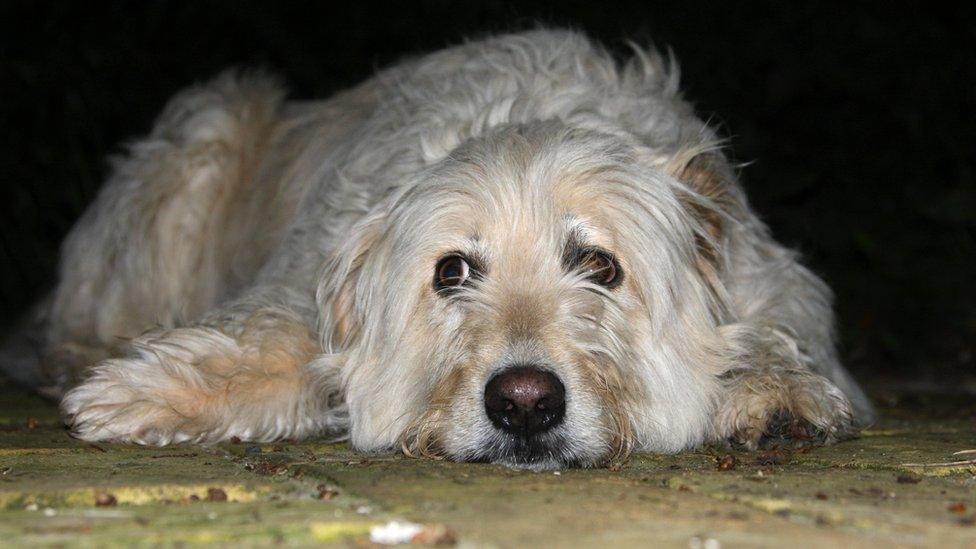Why are some animals euthanised after fireworks?
- Published
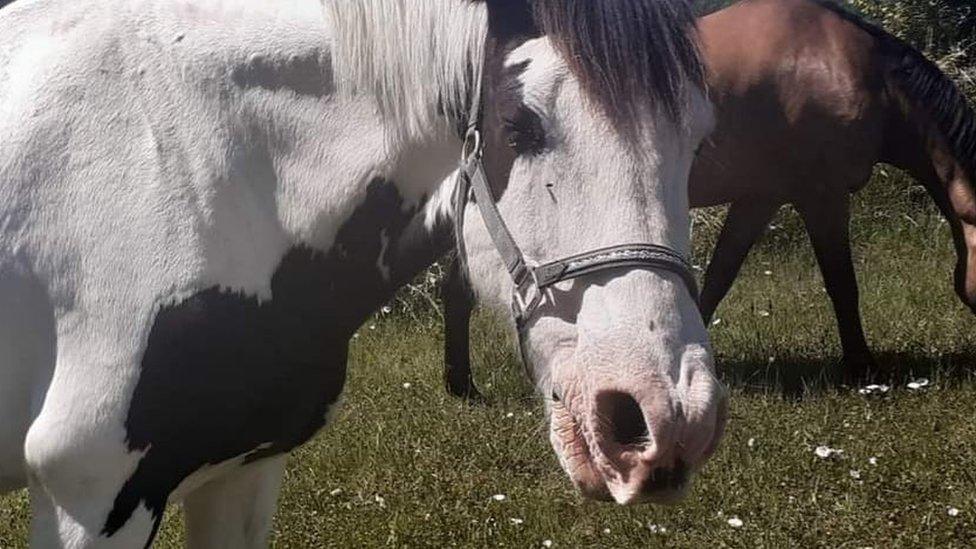
Horse Murphy was put down after the New Year's Eve fireworks
A number of horses in England have had to be euthanised as a result of fireworks marking the start of 2023. Why do fireworks prove so distressing to some animals that it leaves vets with no option other than putting them down?
To mark the start of the new year, a large number of fireworks were let loose near Samantha Parsons' village home in Bedfordshire.
When Ms Parsons went out to check on her 25-year-old horse Murphy later that morning, she found him lying on the ground in state of "complete distress" with "such panic in his eyes".
He was so struck with terror he could not stand up.
After four hours of trying to get Murphy to his feet, it was decided, with the care of the vet, he should be euthanised.
"He wasn't going to pull through, so we put him to sleep," said Ms Parsons, of Eaton Bray. "If those fireworks hadn't been set off so close to us, he would still be here today."
Murphy is far from alone.
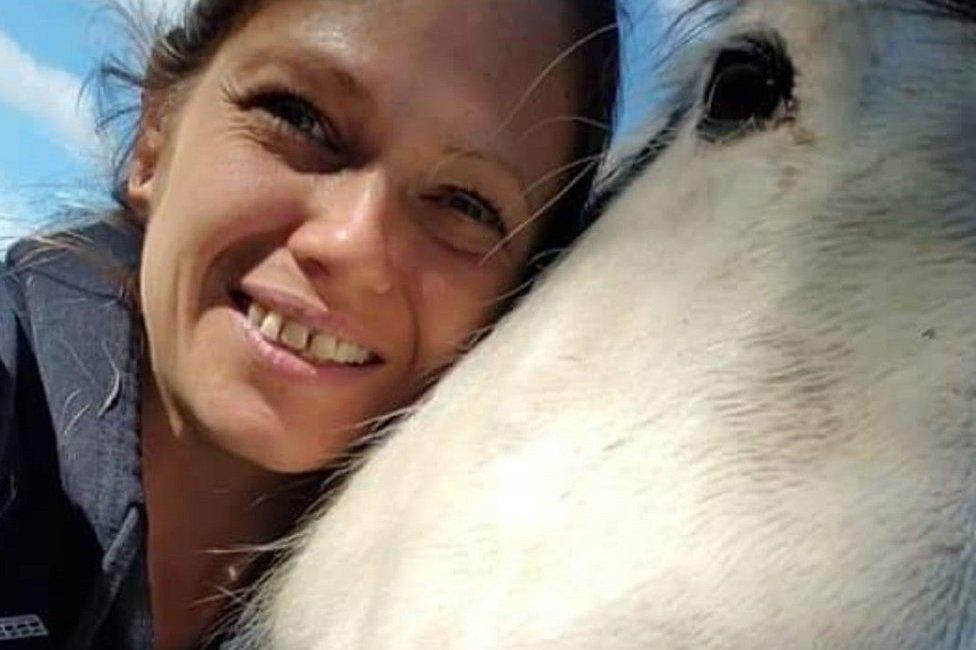
After four hours of trying to get Murphy to his feet it was decided he should be euthanised, said owner Samantha Parsons
The British Horse Society said more than 1,120 incident reports involving fireworks had been received in the past 12 years.
The reports include:
291 horse injuries
75 human injuries
42 horse fatalities
And the society fears the true impact is far worse, because it believes only one in 10 incidents are reported.
As well as Murphy, Surrey-based Joanna Barnett's horse Talullah had to be put to sleep after she bolted during new year fireworks and was seriously injured.
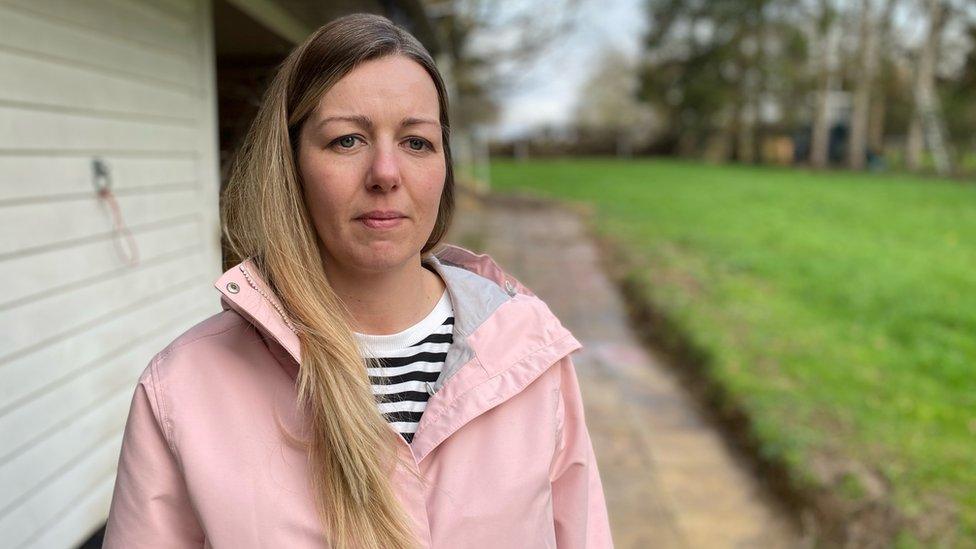
Ms Barnett's horse Talullah bolted amid fireworks and had to be put down
Lucy Grieve, equine projects officer at the British Equine Veterinary Association, said: "Just like people, all horses are different."
Horses frightened by fireworks can end up in a fight or flight state, which poses a serious risk to their human carers trying to comfort them.
In some cases, fireworks can cause such "extreme distress" that, when their adrenaline store is depleted, they go into a kind of shut down state, said Ms Grieve.

Because fireworks can be let off night after night, the fear can become "hard-wired", said Lucy Grieve
Prolonged fright, she said, can affect a horse's bodily functions and cause problems like heart arrhythmia, a dangerous drop in blood pressure or longer-term endocrine issues.
Because fireworks are sometimes let off night after night, the fear can become "hard-wired", she said.
"It can change their physiological state. They might be able to cope with a short, sharp shock, but prolonged trauma will have an impact.
"Their hearing and visual systems are totally different to ours, and the way they interpret things is also completely different."
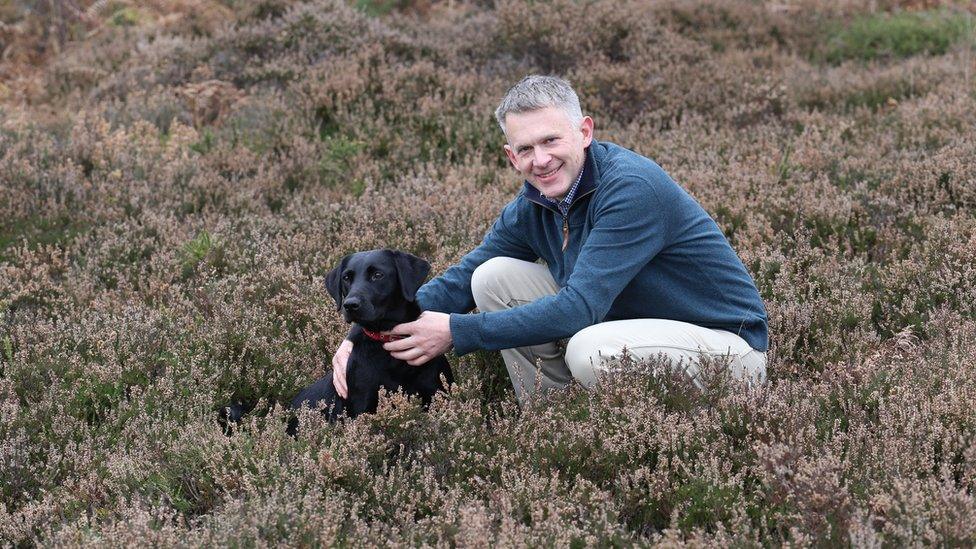
Dr Malcolm Morley, British Veterinary Association president, said he was aware of incidents including dogs pulling out their teeth trying to flee kennels
Dr Malcolm Morley, president of the British Veterinary Association, said: "We surveyed our members in 2018 and one in 14 said they had dealt with firework-related injuries.
"That's the tip of the iceberg, because it does not include wild animals or injuries in which animals were not taken to a vet."
He said he was aware of various incidents including horses injuring themselves trying to get away from the sound of fireworks and dogs pulling out their own teeth trying to flee their kennels.
"We have to see fireworks through their eyes and hear them through their ears," he said.
"Across all species, sudden things they are not accustomed to can make them fearful - it is about preparing them as much as possible."
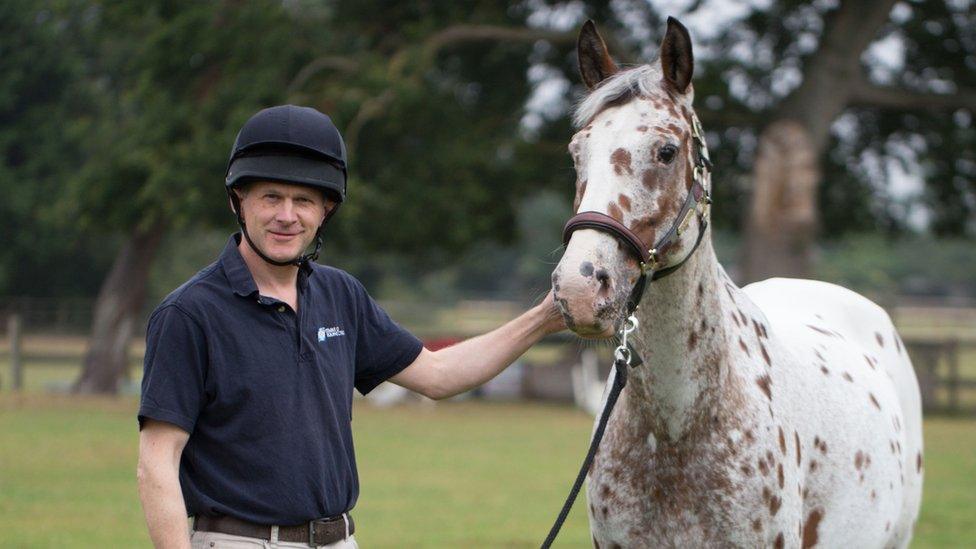
Dr Morley said the public was often unaware of the impact of fireworks on animals and wildlife
Dr Morley said fireworks were a traditional means of celebrating certain times of the year, but said "the public at large is not always aware of the impact they can have - it is not malicious".
"Often with horses, which are flight animals, they are injured not by the fireworks themselves but by the fear of the fireworks," he said.
Animals were only ever euthanised by vets when it was deemed in the animal's best interests, Dr Morley added.
The RSPCA is calling for changes to the law around fireworks.
The charity has urged the government to "follow Scotland's lead" and introduce legislation restricting the times when fireworks can be sold and used, and cut the maximum noise level of fireworks for public sale from 120dB to 90dB.

What is the law on fireworks?
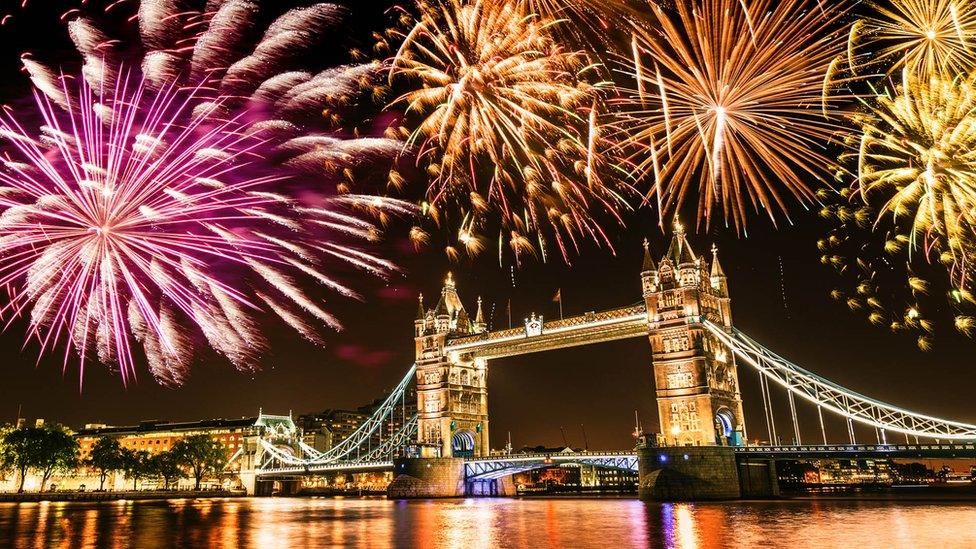
It is an offence under the Animal Welfare Act 2006 to cause an animal any unnecessary suffering and this includes through the misuse of fireworks. The Animal Welfare (Sentencing) Act came into force on 29 June 2021 and has increased the maximum penalty for cruelty to animals to 5 years' imprisonment.
Existing legislation controls the sale, availability and use of fireworks. People cannot buy 'adult' fireworks if you are under 18, and it is against the law for anyone to set off fireworks between 23:00 and 07:00 except on certain occasions. Using fireworks outside the curfew hours is a criminal offence enforced by the police and can lead to imprisonment and a substantial fine.

Andrew Selous, the Conservative MP for South West Bedfordshire, said: "The current law is either not being enforced or not working properly."
Mr Selous said the story of Murphy was "sad and awful".
"I don't think any fireworks display is ever worth causing the death of someone else's much loved family pet," he said. "The current law is either not being enforced or not working properly.
"We need to have a think again, as a country, about how we do better to protect beautiful horses like Murphy.
"I don't want to ban fireworks, I don't want to be a killjoy. It is possible to have them responsibly."
A government spokesperson said: "We recognise that people want to enjoy fireworks at certain times of the year, however it is important that they are used responsibly and considerately to protect both people and animals.
"This is why there are strict regulations in place to control the sale and use of fireworks, including laws to protect animals from harm."

Find BBC News: East of England on Facebook, external, Instagram, external and Twitter, external. If you have a story suggestion email eastofenglandnews@bbc.co.uk, external
- Published14 December 2022
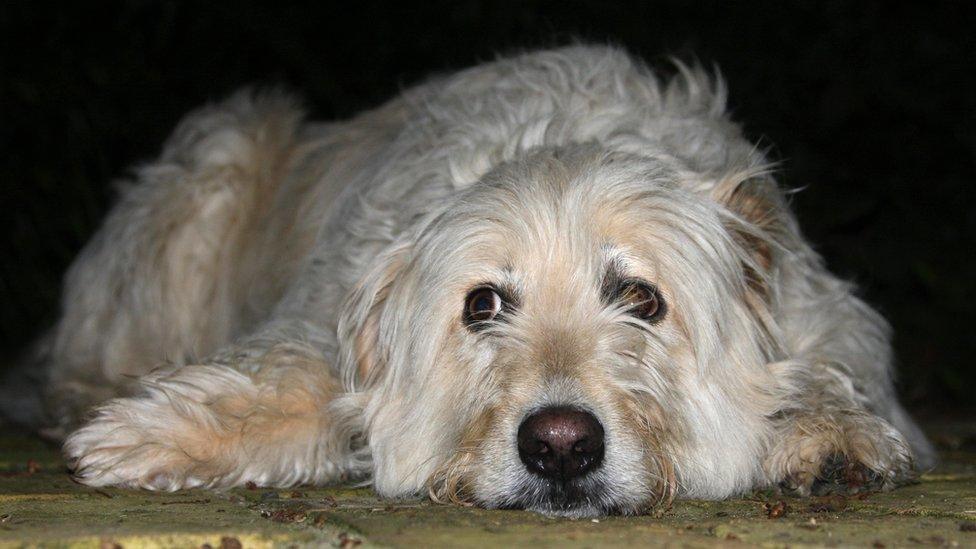
- Published15 November 2022
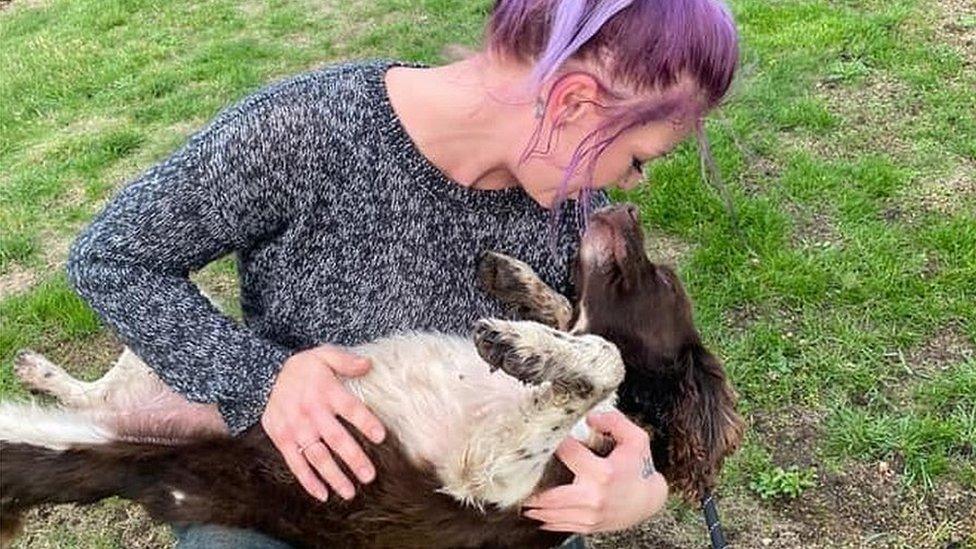
- Published30 December 2021
